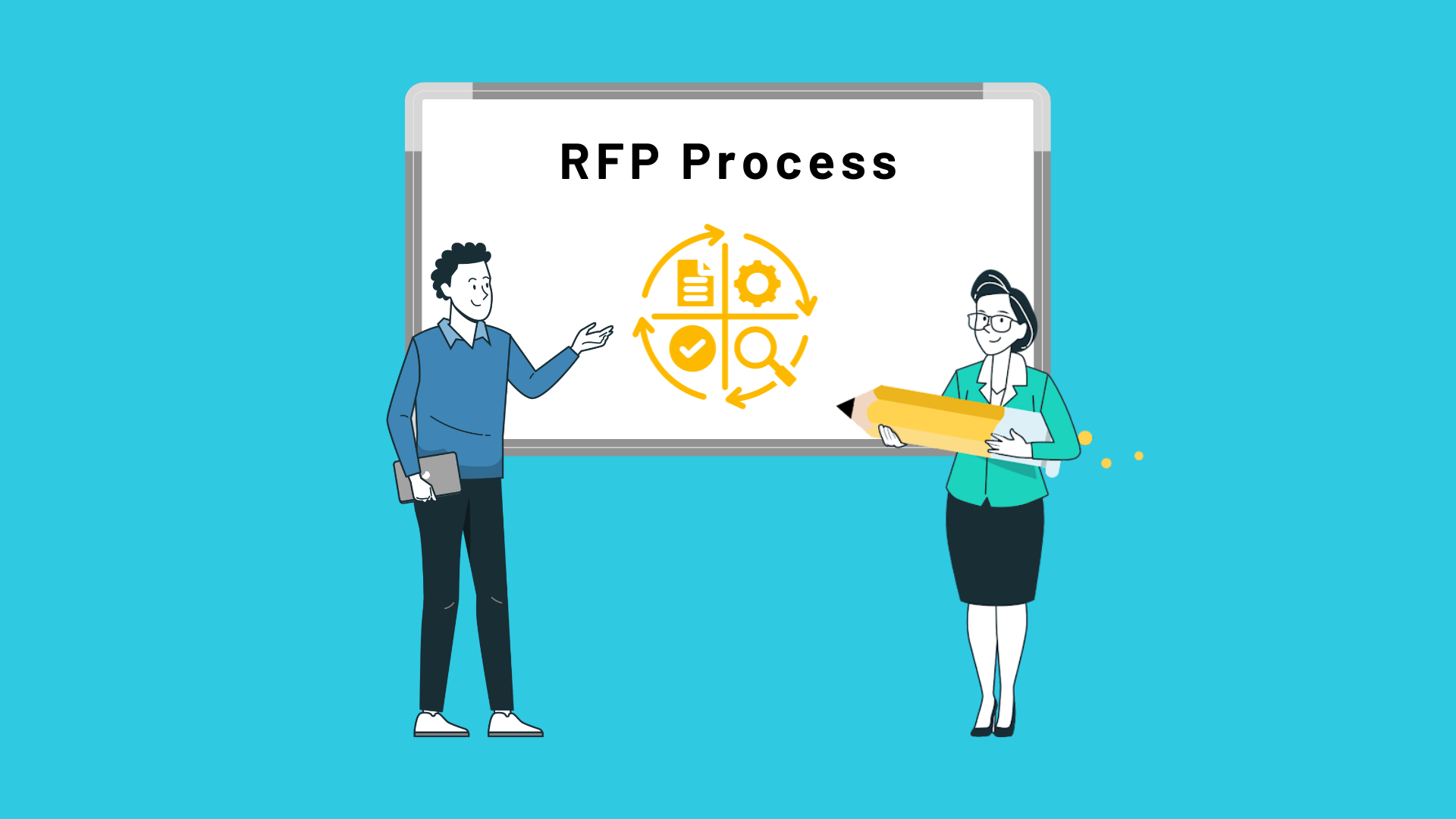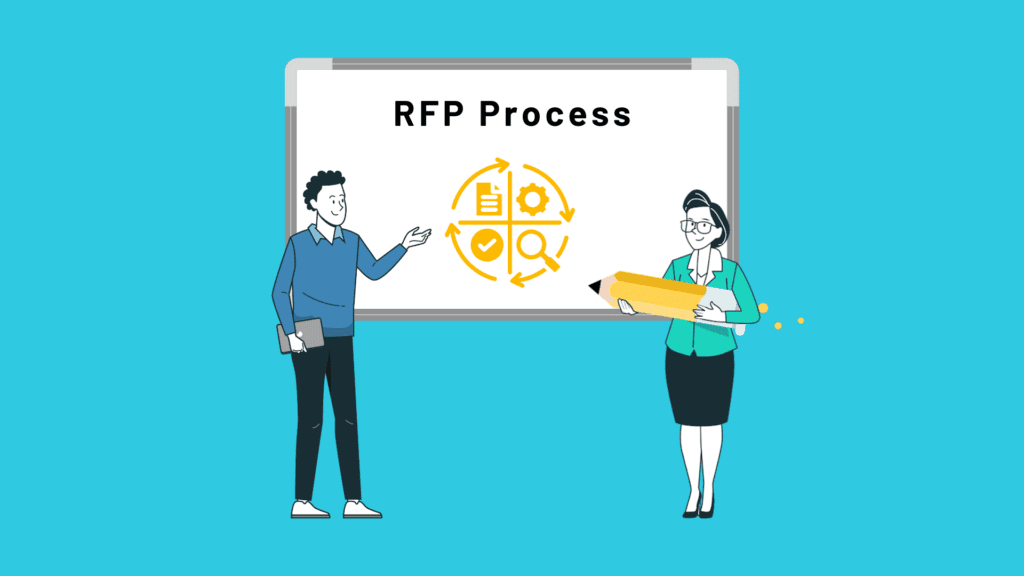What Is the Request for Proposal Process?


Perhaps you’ve heard the term in passing. Or, maybe you’ve read the acronym “RFP” and wondered what it meant (psst– it means “Request for Proposal”). But whether you work for a large corporation or your own small business, knowing how to market goods and services is vital. So, learning the ins and outs of the Request for Proposal process is an important key to future success.
Requests for Proposals are solicitations for organizations to submit bids, compete for contracts and win new business. The issuing entity will specify the required information, and it’s up to the bidder to complete the request in detail.
Responding to Requests for Proposals can help your organization expand into new markets, win additional clients and form beneficial partnerships. RFPs are common across all industries. From medical to automotive to finance, RFPs can be issued by anyone. Federal government departments, private corporations like Amazon, and local officials in the City of Timbuktu all have pain points.
But how does Request for Proposal management actually work? Here at The Bid Lab, we make it easy for you to manage, submit and win business using the RFP process. We broke down our tried and true method into the following steps.
Finding an RFP
If you’re considering breaking into the Request for Proposal space, the first step is identifying the most strategic opportunities. What are your organization’s skills, services and strengths? Where do you feel your biggest opportunities lie? How can you use the resources you have to expand into new markets?
When organizations are new to the RFP process, finding a bid that suits their needs can be challenging. Larger corporations tend to have established teams to handle RFP research and development. Meanwhile, newer or smaller businesses may struggle to locate the right opportunities for them due to more limited resources.
Many companies are designed to help you find the proper RFP. Some offer low-cost models that use AI to scour databases, matching keywords based on your company’s offering. Some firms, like ours, offer AI-powered and human-driven options (via our RFP search engine, Bid Banana). Either way, bid-finding services aim to strategically match businesses with new RFP opportunities. It is vital to start your Request for Proposals process right. After all, picking the right opportunity is just as important, if not more important, than the proposal itself.

Craft a Response
Once your organization is ready, the next step is to create the bid response. This is where you ensure you, the bidder, can meet every requirement outlined in the request.
When reviewing Request for Proposals questions, remember that responses can range from a sentence to an appendix with attached documents. Some may even require you to secure an insurance bond or get a letter of good standing from your state office. No matter how simple or involved, ensure that you’re filling in responses to questions carefully and as concisely as possible.
This is your opportunity to highlight your organization’s unique value. Emphasize what you can offer to the requester and why only you can offer it. Has your business doubled its revenue in the last four years? Are you efficient enough to complete the contract ahead of schedule or below budget? Were you just voted one of the best companies to work for by your employees? Whether it’s financial or organizational in nature, strengths like these should be integrated into your RFP responses whenever possible.
One of the major challenges of crafting RFP responses is striking the ideal balance between informing and persuading your requester. At The Bid Lab, we work with our clients to tell their company’s story through clear, correct and concise proposals.
Design a Thoughtful Bid
If you want your proposal to gain the attention of the requester, you must present aesthetically pleasing, well-written responses. Designing a polished, visually focused bid gives your organization extra leverage against your competitors and is a key component of a winning RFP process.
Formatting and design demonstrate your organization’s attention to detail. So, the more thought you put into proofreading and perfecting your response, the more you prove your organization’s qualifications.
Save and Reuse Whatever You Can
After you finish your proposal, it’s time to start hunting down your next opportunity! Managing the Request for Proposal response you create saves you time on future bids. Save your content in an accessible place and refer back to it as you write your next set of responses. This will help streamline your Request for Proposal process for future bids. Remember to always address the provided questions; don’t just copy and paste content into a bid. Finally, ensure all information is relevant to the proposing entity and adjust your responses accordingly.
At The Bid Lab, we specialize in leveraging previous information provided by your organization. Once we create one bid for you, you’ll have a great foundation of responsive content. This will make your future bidding process more efficient and straightforward.
RFP Follow Up
The RFP management process is much like a job interview: So, always follow up. Offer to provide additional insight or materials on your proposal if needed. Also, remind the requester that you’re excited about the opportunity to service their needs.
This is also a great opportunity to reiterate how your company’s values align with the mission in the RFP. Staying true to your goals helps you clarify your messaging and submit stronger bids. The RFP process may seem involved at first. But, with practice, responding to bids can become a viable way to grow your business.
You Don’t Have to Go It Alone
If your organization needs assistance researching, preparing or perfecting a proposal, defer to the specialists at The Bid Lab. The Bid Lab is available to help with all of your RFP management needs. We even created Bid Banana, the user-friendly RFP search engine, to help our clients find new opportunities. So, schedule a free consultation today by calling 1-844-4BIDLAB or by emailing respond@thebidlab.com.
